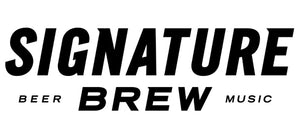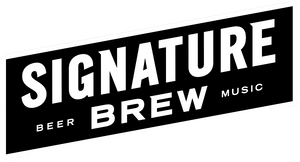Innovation in Low/No Alcohol Brewing
Tackling Innovation in Low/No Alcohol Brewing: The Story of Lo-Fi
As innovators in the brewing industry, we at Signature Brew take pride in pushing the boundaries of what’s possible in beer. With the Lo-Fi project, we embarked on a journey to revolutionise low and no-alcohol beer by incorporating glycerol into the brewing process. This groundbreaking approach made us the first commercial brewery globally to adopt this technique. Here's what we learned and the steps we took to perfect this new frontier of brewing.
Why Glycerol?
Glycerol serves as a game-changer for low/no alcohol beer. It enhances mouthfeel, adds a subtle sweetness, and allows for hop additions that create a more authentic craft beer experience. The result is a low-alcohol pale ale that mirrors the aesthetic and quality of its full-strength counterparts. However, innovation doesn’t come without its challenges.
Challenges and Solutions
1. Clarity Issues
The Challenge: The addition of glycerol caused suspended particles and haze, which impacted the beer’s visual clarity—a key marker of quality for consumers.
Our Solution: To tackle this, we improved filtration techniques and optimised the mash profile. By adjusting mash temperature and pH, we reduced haze-forming proteins and polyphenols. Additionally, we tested reverse osmosis technology to refine beer filtration further.
2. Poor Head Retention
The Challenge: The glycerol addition led to poor foam stability, affecting the beer’s aroma release, carbonation, and visual appeal.
Our Solution: We adjusted the grain bill to incorporate higher-protein malts and wheat, significantly improving head retention. Carbonation levels were also fine-tuned to strike the right balance between CO2 and proteins, ensuring a consistent and appealing foam.
3. Shelf Life and Can Stability
The Challenge: Oxidation and microbial contamination due to glycerol addition shortened shelf life, while halted fermentation introduced risks of secondary fermentation in cans.
Our Solution: By enhancing our glycerol addition process to minimise oxygen pickup and introducing rigorous quality control for microbial contamination, we improved product stability. We also refined filtration and explored dilution techniques to prevent over-carbonation and off-flavors.
4. Excessive Haze from Proteins
The Challenge: Protein-polyphenol interactions created persistent hae, impacting the beer’s marketability.
Our Solution: Optimising the mash profile was critical. We adjusted temperatures and pH to minimise these interactions, achieving clarity without compromising flavor or mouthfeel.
5. Excessive Sweetness
The Challenge: The beer’s sweetness occasionally overwhelmed its flavor profile, narrowing its appeal.
Our Solution: Through iterative recipe adjustments, we balanced fermentable grains with adjuncts that contributed body and depth without adding excess sweetness. This allowed us to maintain the desired malt-to-hop ratio.
Key Takeaways from the Lo-Fi Project
The Lo-Fi project exemplifies the intersection of creativity and science in brewing. By addressing challenges systematically—from clarity and head retention to shelf life and flavor balance—we’ve made significant strides in enhancing the quality and consistency of low-alcohol beer. While our journey with Lo-Fi continues, we’re proud of the progress we’ve made and the new possibilities we’ve opened for the industry.
What’s Next?
As we refine Lo-Fi further, we’re committed to continued experimentation and innovation. From exploring advanced filtration methods to refining recipe formulation, we aim to set new standards in low/no alcohol brewing. We’re also excited to share our findings with the wider brewing community to inspire further innovation.
At Signature Brew, every challenge is an opportunity to create something extraordinary. The Lo-Fi project is just one example of how we’re redefining what’s possible in beer—and we’re only getting started.
Let’s Connect Have questions or want to collaborate? Get in touch with us to learn more about the Lo-Fi project and our journey in brewing innovation.





